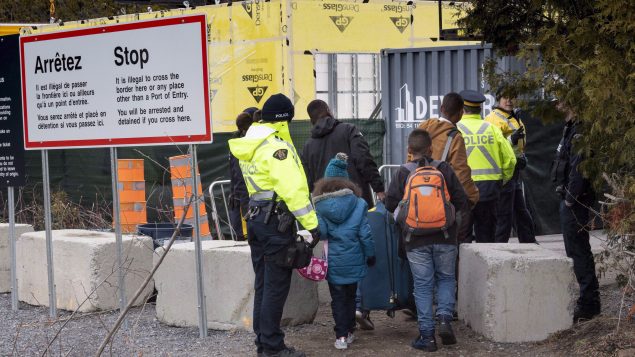The Canadian government is set to argue during a Federal Court of Appeal hearing today and tomorrow that an agreement between Canada and the United States to treat each other as “safe countries” for refugees does not violate the Charter of Rights and Freedoms.
Federal government lawyers are expected to argue that Federal Court Justice Ann Marie McDonald misinterpreted the law when she ruled in July 2020 that the Safe Third Country Agreement violates the Charter rights “to life, liberty and security of the person.”
The court’s declaration of invalidity was suspended for six months and later extended, leaving the law in place for now.
Under the bilateral agreement, which took effect in 2004, Canada and the U.S. recognize each other as safe places to seek protection. It means Canada can turn back potential refugees who arrive at land ports of entry along the Canada-U. S. border on the basis they must pursue their claims in the U.S., the country where they first arrived.
Canadian refugee advocates have vigorously fought the asylum agreement, arguing the U.S. is not always a safe country for people fleeing persecution.
Amnesty International (AI), the Canadian Council for Refugees (CCR), and the Canadian Council of Churches (CCC), which brought the original challenge of the agreement to the Federal Court, are calling on the Federal Court of Appeal to uphold Justice McDonald’s ruling.
“Many refugee claimants are not safe in the U.S., and do not benefit from the same protection that they would receive in Canada,” said in a statement Ketty Nivyabandi, Secretary General of Amnesty International Canada.
Refugee protection in the U.S. drastically deteriorated under the Trump administration, but many laws and policies that violate refugee rights preexisted his administration, and will not be easily reversed by the new Biden administration, the groups argue.
Arbitrary detention of thousands of migrants and asylum seekers in the U.S. continues in more than 200 immigration detention facilities, they add.
In addition, arbitrary detention is routinely used by U.S. authorities to undermine access to legal counsel and pressure asylum seekers into giving up their claim, thereby forcing them back to serious human rights violations in their country of origin, refugee protection groups say.
“Every day that the agreement remains in force, people are at risk of being sent back to detention and potential deportation to persecution,” said in a statement Dorota Blumczynska, CCR President.
“The U.S. has never been safe for all refugees, and the fact that President Biden is in the White House does not change that. Women are particularly affected, because of U.S. policies that close the door on women fleeing gender-based violence.”
The Biden administration is proposing to revise the number of refugees that can be admitted to the United States in fiscal year 2021 to 62,500, a significant increase from the 15,000 cap put in place under former President Donald Trump.
Trump set the ceiling on refugee admissions in October when the 2021 budget year started, and it runs until September 30. Biden’s proposal of 62,500 would replace that, and the president has already announced plans to raise admissions to twice that amount in 2022.
In his first foreign policy speech earlier this month, Biden announced plans to up admissions in 2022 to 125,000, which would surpass the ceiling of 110,00 set by President Barack Obama before he left office and be more than eight times the amount set by Trump near the end of his term.
Biden, through executive order, also called for rescinding Trump-era rules that resulted in excessive vetting of applicants, expanding capacity for adjudicating applications for refugee applications, and other steps.
With files from The Canadian Press and The Associated Press







For reasons beyond our control, and for an undetermined period of time, our comment section is now closed. However, our social networks remain open to your contributions.